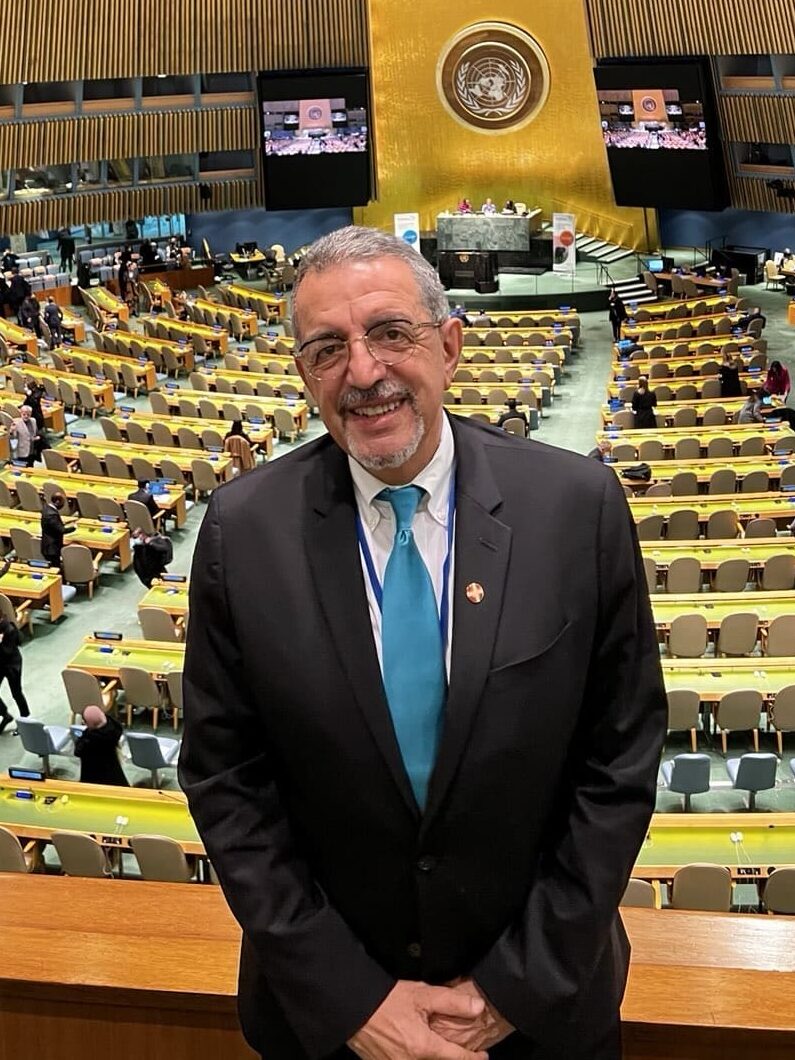On November 25th, many women’s groups and churches across the globe supported the International Day to End Violence against Women. Through a global network established in by the World Evangelical Alliance (WEA), individuals and organizations used the Red Chair Action Day to raise awareness about women and girls who are victims of domestic abuse.
Bishop Dr. Thomas Schirrmacher, Secretary General of the WEA, said, “We want the whole world to address the issue of abuse and be a voice for the abused, but the credibility of our prophetic witness to all depends on our willingness to repent of the sin in our midst and of our own laziness to address such abuse, and to build up structures that help to avoid it. We want to bring hope, not hurt, but often we do need to listen to those hurt first, before we bring hope.”
The statistics about domestic violence are staggering – it’s estimated that 137 women die every day at the hands of a partner or close family member. Physical violence, online abuse, financial control, and psychological cruelty impact millions of women every year.
Abuse inside the Church has rarely been talked about. Valerie Duval-Poujol a French Baptist theologian, says, “The statistics of domestic violence, are very high and occurring within our evangelical churches (1 church-goer out of 4) so we must do all we can to bring an end to this huge suffering. We know that the numbers of victims significantly decrease if church leaders are being trained and if our churches offer support to the victims.”
This year, the Asian Evangelical Alliance conducted important research in six nations about the extent of family conflict and abuse. The findings showed that domestic abuse is widespread in churches and 70% of pastors did not feel equipped to deal with it. As a result, the AEA held webinars to train leaders, and were pleased that hundreds of pastors took part.

To highlight the action that churches can take to address violence against women, people in many locations from Pakistan to Guyana organized simple action to raise awareness about domestic abuse – an empty chair placed in a prominent place, draped in red, to symbolize the women who are ‘missing’ because of violence. The Christian Network to End Domestic Abuse (CNEDA) produced prayer and preaching resources, and called on churches to take simple steps to support victims and deal with the perpetrators.
Erika, a doctor in Romania, is a survivor of abuse. She spent years feeling unworthy and ashamed. She wondered whether she needed to love her husband more and got no support from her church. “Sadly,” says Erika, “the Church was on mute, and it needs to break the silence. The Church must be determined to learn about domestic abuse, and must emphasize that abuse and violence towards women is a sin. God does not punish women or want them to endure such a situation.”
The founder of the CNEDA network, Amanda Jackson said this week, “We have a responsibility and duty to support women like Erika: look out for the signs of abuse, support victims, pray and deal justly with abusers.”
See CNEDA resources in several languages, and standagainstdv.net, a Baptist initiative
You can download a good introduction booklet, A Biblical View of Relationships, in English, Portuguese, French and Russian.





Stay Connected